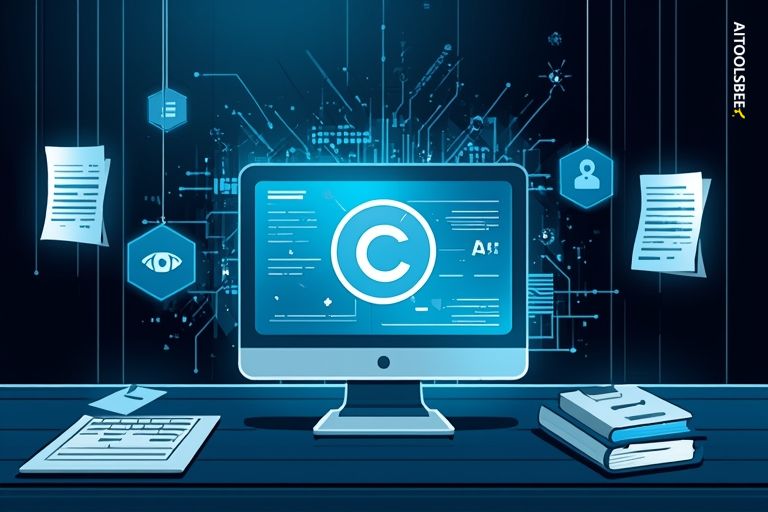
Quizlet’s Copyright Dispute: A New Legal Challenge in AI
A recent court ruling in the case of Barkley & Associates, Inc. v. Quizlet, Inc. has intensified the legal debate over how generative AI companies use copyrighted content. The central issue is whether Quizlet unlawfully used proprietary test prep materials from Barkley & Associates to train its 'Quizlet+ AI'.
The court denied Quizlet's motion to dismiss, allowing Barkley's claims of direct and vicarious copyright infringement to proceed. Barkley alleges that Quizlet not only hosted infringing uploads from users but also directly copied its materials to train AI systems that generate educational outputs mimicking Barkley's proprietary content. The court notably accepted Barkley's theory that copyright protection can extend to the selection, arrangement, and pedagogical framing of factual content.
Quizlet argued that the materials are too factual to be copyrightable, user uploads aren't its responsibility, and AI outputs fall under fair use. However, the court rejected these defenses at this early stage, emphasizing Barkley's plausible claim of originality in its curation of test content. This case raises critical questions about the role of educational compilations in the AI training pipeline and whether AI-generated outputs that closely mimic copyrighted materials cross the infringement line.
The ruling adds to early decisions among courts grappling with similar AI copyright issues. In Ross Intelligence, the court found AI training on legal headnotes infringed copyrights. In contrast, Kadrey v. Meta granted summary judgment in favor of Meta, finding no market harm. Meanwhile, Bartz v. Anthropic remains notable for a controversial fair use finding despite clear copying. The Quizlet case signals skepticism toward AI's blanket fair use defenses, especially in educational and commercial contexts.
This ruling raises the stakes for AI companies training on structured proprietary content, particularly in education. For plaintiffs, it reinforces the viability of bringing copyright claims rooted in the arrangement and instructional design of factual material. For platforms, it's a warning: thin copyright can cut deep when wielded strategically. As the case proceeds to discovery, it could become a bellwether for AI training litigation in academic publishing and beyond.

